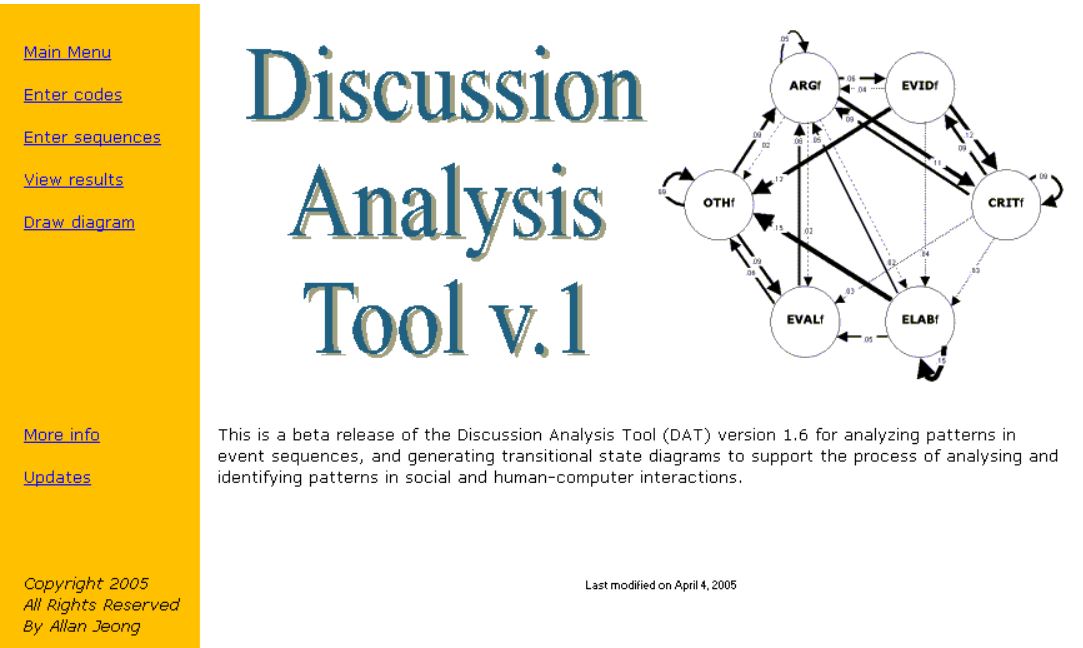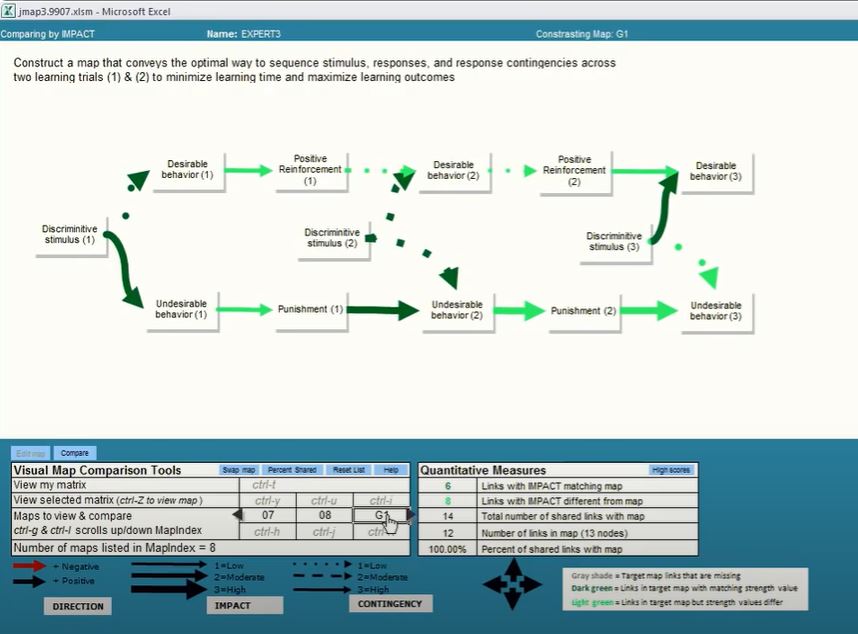|
| Vita | Publications | Projects | Sample publications | Allan C. Jeong Dept. of Educational Psychology & Learning Systems Key Interests: Developing and integrating learning analytics and AI into e-learning environments (e.g., online threaded discussions forums, argument maps, causal maps, knowledge maps) to identify, assess, and model critical thinking and knowledge building processes and the impact of these processes on learning and performance. Introduction Since joining the Instructional Systems program in 2001, I have been learning analytic tools and methodologies to visualize and sequentially map cognitive processes exhibited in computer-mediated and collaborative learning environments. These tools provide a means to operationally define, quantitatively measure, test, and identify sequential patterns in students' behaviors with mined data in e-learning environments. The goal is to apply these visual analytic tools to engage in reverse engineering - a process of identifying the cognitive processes and task sequences successful learners perform to achieve the target goals - to formulate instructional models that can be used to help all learners maximize learning and performance. The second goal is develop instructional interventions that are effective in guiding students through the prescribed learning process and to apply the visual analytic tools to determine to what extent the interventions are able to change students' learning processes, and the extent to which observed changes in students' learning processes lead to improvements in learning and performance. The earlier work have culminated into two software programs, ForumManager & Discussion Analysis Tool to study online discussions. My paper, "A Guide to Analyzing Message-Response Sequences and Group Interaction Patterns in Computer-Mediated Communication", presents an indepth discussion of how to use these tools to: a) determine which and to what extent certain characteristics of both the messenger and responder (gender, intellectual openness, writing skills), the message (message function, conversational vs. expository style, intensifiers vs. qualifiers, response time, day of posting), and instructional environment (prescribed conversational scripts and message tags, pre-structured/unstructured discussion threads, imposing constraints on message-reply sequences) help to elicit the types of responses and dialog move sequences that produce higher levels of critical thinking; and b) produce visual diagrams and stochastic models to concisely convey how specific factors affect the processes of critical discourse (see research summary). To support further development of learning analytics and data mining methods in future research, I've developed a fully functional and customizable discussion board in Google spreadsheets.
The use of computer-assisted mapping tools is another means to supporting the use and development of students' critical thinking skills. As a result, I am developing the jMAP software application for creating maps (e.g., causal maps, argument maps, mindmaps), assessing the quality of students' maps, and modeling the processes students use to create the maps (video demo). The software mines all the actions students perform while creating their maps, applies algorithms that analyzes the actions to determine to what extent students are using specific reasoning strategies (e.g., backward/deductive vs. forward/inductive process, breadth vs. depth first processing), and identify which processes produce higher quality maps. The end goal is to develop e-learning environments that can: a) monitor and assess the critical thinking skills students are using as they perform an instructional task; and b) provide real-time interventions to help student learn and improve their critical thinking skills. In time, the jMAP and DAT applications can be used in combination to study the interplay between argumentative discourse and causal modeling/understanding. Combining the jMAP and DAT (or tools like it) into AI-powered learning management systems will enable us to apply learning analytics to computationally model human cognition and dynamically support the cognitive processes to improve learning, problem-solving, and performance.
Current Research Projects
Sample Publications
Last update: August 22, 2024
|

|



